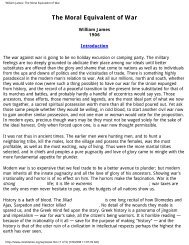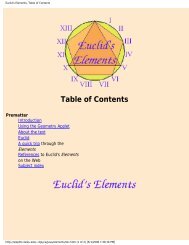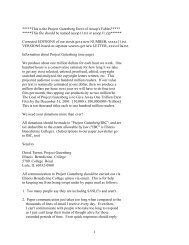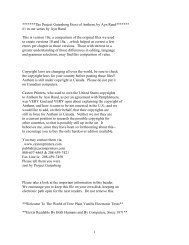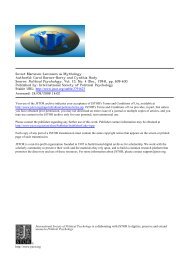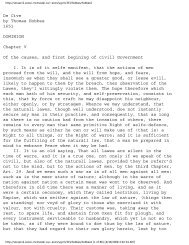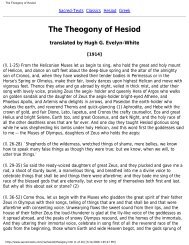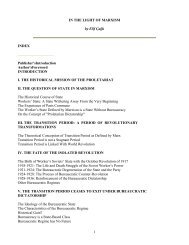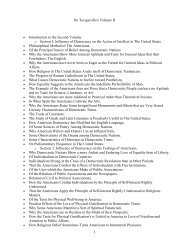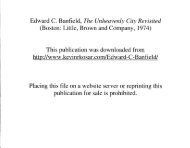Project Gutenberg Etext of The Large Catechism, by Martin Luther
Project Gutenberg Etext of The Large Catechism, by Martin Luther
Project Gutenberg Etext of The Large Catechism, by Martin Luther
You also want an ePaper? Increase the reach of your titles
YUMPU automatically turns print PDFs into web optimized ePapers that Google loves.
show <strong>of</strong> right or <strong>by</strong> a subterfuge, yet with injury to his neighbor. For<br />
above, in the Seventh Commandment, the vice is forbidden where one<br />
wrests to himself the possessions <strong>of</strong> others, or withholds them from his<br />
neighbor, which he cannot do <strong>by</strong> right. But here it is also forbidden to<br />
alienate anything from your neighbor, even though you could do so with<br />
honor in the eyes <strong>of</strong> the world, so that no one could accuse or blame<br />
you as though you had obtained it wrongfully.<br />
For we are so inclined <strong>by</strong> nature that no one desires to see another<br />
have as much as himself, and each one acquires as much as he can; the<br />
other may fare as best he can. And yet we pretend to be godly, know how<br />
to adorn ourselves most finely and conceal our rascality, resort to and<br />
invent adroit devices and deceitful artifices (such as now are daily<br />
most ingeniously contrived) as though they were derived from the law<br />
codes; yea, we even dare impertinently to refer to it, and boast <strong>of</strong> it,<br />
and will not have it called rascality, but shrewdness and caution. In<br />
this lawyers and jurists assist, who twist and stretch the law to suit<br />
it to their cause, stress words and use them for a subterfuge,<br />
irrespective <strong>of</strong> equity or their neighbor's necessity. And, in short,<br />
whoever is the most expert and cunning in these affairs finds most help<br />
in law, as they themselves say: Vigilantibus iura subveniunt [that is,<br />
<strong>The</strong> laws favor the watchful].<br />
This last commandment therefore is given not for rogues in the eyes <strong>of</strong><br />
the world, but just for the most pious, who wish to be praised and be<br />
called honest and upright people, since they have not <strong>of</strong>fended against<br />
the former commandments, as especially the Jews claimed to be, and even<br />
now many great noblemen, gentlemen, and princes. For the other common<br />
masses belong yet farther down, under the Seventh Commandment, as those<br />
who are not much concerned whether they acquire their possessions with<br />
honor and right.<br />
Now, this occurs most frequently in cases that are brought into court,<br />
where it is the purpose to get something from our neighbor and to force<br />
him out <strong>of</strong> his own. As (to give examples), when people quarrel and<br />
wrangle about a large inheritance, real estate, etc., they avail<br />
themselves <strong>of</strong>, and resort to, whatever has the appearance <strong>of</strong> right, so<br />
dressing and adorning everything that the law must favor their side,<br />
and they keep the property with such title that no one can make<br />
complaint or lay claim thereto. In like manner, if any one desire to<br />
have a castle, city, duchy, or any other great thing, he practices so<br />
much financiering through relationships, and <strong>by</strong> any means he can, that<br />
the other is judicially deprived <strong>of</strong> it, and it is adjudicated to him,<br />
and confirmed with deed and seal and declared to have been acquired <strong>by</strong><br />
princely title and honestly.<br />
56



